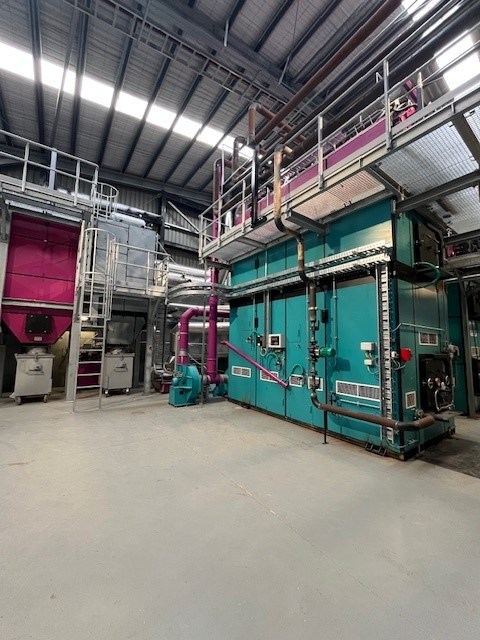
Biofuel putting the power into plants
Logging waste is helping fuel the glasshouses of one of the biggest plant producers in New Zealand.
Zealandia Horticulture, a specialist wholesale grower of annuals, houseplants and commercial seedlings, has over 9.5 hectares of glasshouses at their South Auckland site that require heating to enable them to grow millions of plants year-round for supply to retailers across the country.
Rayonier Matariki Forests Northland Regional Manager, Will Steward, says the company is supplying pulp logs and log offcuts to the plant producer for the sole purpose of creating bio energy.
“Forestry waste is being given a new purpose and it is flagged as the new fuel of the future. Woody debris that was previously left in the forest to decompose is being collected, chipped and fed into the furnace,” explains Will. “As well as significantly reducing greenhouse gas emissions by burning wood chips instead of fossil fuels, there are multiple benefits to putting infrastructure in place to enable the recycling of forestry waste,” continues Will.
The pulp logs and offcuts are collected from Rayonier Matariki’s Greenridge Forest operation and delivered to Zealandia’s Clevedon site 10 kilometres away where they are stockpiled before being chipped. The coarse chips are fed into the onsite furnace connected to a boiler with automated feed rates to ensure a constant burn rate is achieved. The heated water is then piped around the glasshouses in order to carefully and efficiently maintain a constant temperature.
Vince Wylaars, Managing Director of Zealandia Horticulture, says that while biomass is a relatively new product for heating greenhouses, Zealandia had the foresight to implement technology more than 10 years ago, introducing this form of energy to their Christchurch operation in 2005 and then Auckland’s operation in 2016.
“We previously outsourced a supply of wood chips but given there are local forests near our Clevedon site it made sense to bring the logs in and process them ourselves so we invested $1.3million in chipping machinery,” says Vince. “The consistency of the chip being produced is far superior to what we were purchasing previously, which has led to lower operating and maintenance costs, less interruptions and improved energy efficiency.
“We’re now looking to increase the temperature of the glasshouses to increase the productivity of the seedlings and therefore increase the turnover rate of new plants,” says Vince.
Will says this project has proven that there are definitely opportunities for bio energy. “It is great to see a carbon neutral supply not only providing an energy source for our customer but going into a downstream product that then gets planted back into gardens across New Zealand.”
